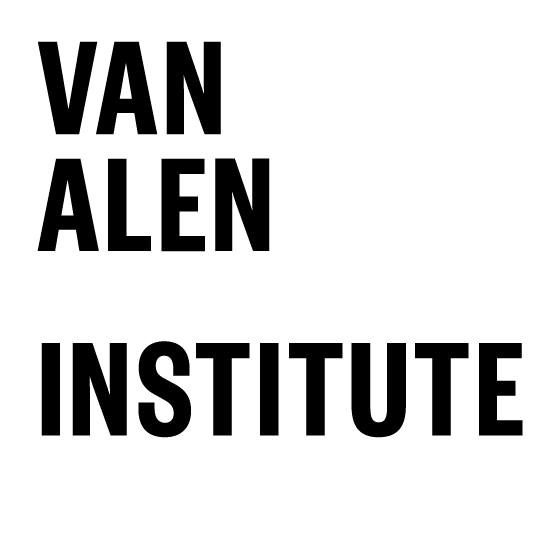Urban SOS 2017: Fair Share
Call for projects organizer
At Van Alen Institute, we believe design can transform cities, landscapes, and regions to improve people’s lives.
We collaborate with communities, scholars, policymakers, and professionals on local and global initiatives that rigorously investigate the most pressing social, cultural, and ecological challenges of tomorrow.
Description
The so-called “sharing economy” has changed the way we live, work, get around, take care of daily tasks and interact with each other. But even bigger transformations are possible. It’s time to imagine a new generation of digital innovations combined with physical design strategies to tackle some of the toughest challenges facing cities today.Fair Share: the 2016 Urban SOS competition, calls on multidisciplinary teams of students to come together and apply the tools and technologies of the sharing economy to support more equitable access to resources, improve the built environment and enrich the quality of life of urban residents.
Design + technology for better cities
As we're defining them, sharing economy models have a couple of basic things in common: they use digital technology to connect people who have a shared need, and give them access to resources that aren’t being used you want to borrow a bike; I’ve got one I’m not using right now.
We want you to use these principles and apply them to parks, schools, public housing, roads, and any other type of physical spaces or infrastructure in cities to solve urban problems.
SOME QUESTIONS TO GET YOU STARTED
How can the combination of physical design strategies and digital sharing platforms create more equitable access to services and resources in underserved communities?
How could government agencies share schoolyards, internet access, books, buses, computers, office space or other physical items, and information or spaces with people who need them? How could design help transform these assets to better meet people’s needs?
Can technology engage groups of people to share the responsibility of taking care of spaces (parks, streets) or people (senior citizens, kids after school) that don’t get the attention they need?
How could sharing economy models offer new ways for many stakeholders to pool resources, exchange ideas and work together to improve the built environment?
How could sharing economy models promote new labor and ownership models that protect and empower service providers, and create safe, productive environments for them?
HOW DOES THE COMPETITION WORK?
You and your team will identify a problem or need at a specific site in a specific city around the world, and a population that current infrastructure struggles to address. Then send us your proposal for how design and technology can create a sharing system with both digital and physical components that addresses this need. Your final proposal has to be more than an app or other digital device — it must also make a physical intervention in the city.
We’ll select up to fifteen semifinalist proposals from around the world to be reviewed by our juries of experts in Hong Kong, London, Los Angeles, New York and Sydney. Juries will select a series of finalists who will advance to the final round in Los Angeles, where students from the top teams will present their proposals. The winning team will receive US $7,500 and up to US $25,000 of in-kind support from AECOM to bring their project to life in the real world. Second and third place teams will receive US $5,000 and US $2,500 respectively
Jury
Executive Director, Van Alen Institute
Chief Resilience Officer, City of Los Angeles
Director of Planning, City of Los Angeles
Director, LAVA Asia Pacific
Curator of Design and Architecture, M+ Museum
Professor of Architecture/Urban Design and Urban Planning, UCLA
Head of Research & Development, WeWork
Global Director of Cities, AECOM
Global Director of Sports, Mega Events, AECOM
Digital Product Director, Motivate International
Dean, University of New South Wales Built Environment
Senior Fellow, New Cities Foundation
Marketing Director, Intel Corporation
Partner, Snøhetta
Design Excellence Manager, City of Sydney
Director, Norman Foster Foundation
Senior Economist, Zillow
New York City Department of Planning, Chief Urban Designer and Head of Urban Design
Founding Partner, ESKYIU
Rewards
First Prize
$7 500The team will receive up to US$25,000 of in-kind support from AECOM to realize a pilot project from their proposal
2nd place
$5 0003rd place
$2 500Honorable mention
Timeline
America/Los_AngelesRegistration
Launch of the call for projects ends
Results
Announcement of up to 15 semifinalist teams.
Results starts
Regional juries in Hong Kong, London, Los Angeles, New York and Sydney review up to 15 semifinalists’ proposals.
Results ends
Regional juries in Hong Kong, London, Los Angeles, New York and Sydney review up to 15 semifinalists’ proposals.
Event starts
Representatives from the finalist teams travel to Los Angeles for the Final Jury event and announcement of the winning team.
Event ends
Representatives from the finalist teams travel to Los Angeles for the Final Jury event and announcement of the winning team.







